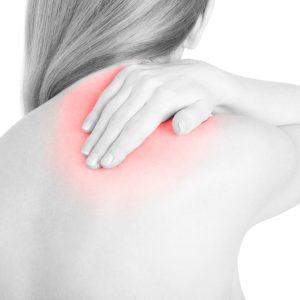
Nerve Entrapment Pain
Nerve entrapment results from the pressure applied to a nerve. This pressure leads to considerable pain including potential weakness, a tingling sensation and even a burning sensation. A nerve injury can occur in any part of the nerve. Nerve entrapment typically occurs are certain locations. There is the possibility of pressure along the nerve to occur at fibromuscular tunnels or points where the nerve connects with muscle.
If the doctor believes you might have nerve entrapment pain, your medical history will be reviewed and a physical exam will be conducted. Additional imaging might be necessary to determine the specific cause of your pain. Everything from an EMG to a CT scan, an MRI and an Ultrasound will be considered to accurately diagnose your pain.
Causes of Nerve Entrapment Pain
This unique type of pain often stems from chronic injury to the nerve in question. If the nerve is compromised and there is compression between the bony surface and ligamentous canal within the osseoligamentous tunnel, the patient might feel considerable pain. A small part of the compressive surface of the nerve will still be mobile, creating a sliding or slapping compression characterized by tight edging that culminates in a chronic injury.
Though few know it, certain disorders and even pregnancy can lead to entrapment neuropathies. Hypothyroidism, acromegaly and rheumatoid arthritis are all known to lead to entrapment neuropathies.


Symptoms of Nerve Entrapment Pain
If you feel muscle weakness, a burning sensation, a tingling sensation or paresthesia, you might have nerve entrapment pain. Additional symptoms of nerve entrapment pain include restricted movement, excessively dry thin skin and an electric shock-like feeling.
Treating a Nerve Entrapment Pain
Our medical professionals are here to treat your nerve entrapment pain to minimize your discomfort and help you return to comfortable living. A plethora of treatment modalities are available for patients suffering from nerve entrapment pain. Neuropathic medication helps to reduce the symptoms of this pain by calming the nerve.
The application of heat, ice and/or a brace might also help. The doctor might also recommend injection therapy, physical therapy, rest and stretching. Surgery is the last resort for treating nerve entrapment pain.
It is also possible that the immobilization of the problematic nerve with the use of a splint or simply altering your lifestyle will help eliminate the pain. If the doctor recommends altering your lifestyle, follow the advice down to the very last detail as you might be able to successfully treat your nerve entrapment pain with a noninvasive therapy as opposed to invasive surgery. Furthermore, there is the potential for treating an underlying condition that is the actual cause of the problem to minimize discomfort and symptoms.
We are Scheduling Appointment for New Patients
If you suspect or know you have nerve entrapment pain or another form of pain, contact us today. We are currently accepting new patients. Reach out to our Carrollton clinic by dialing (972) 316-7270. You can reach our Denton Clinic at (940) 222-8943.

